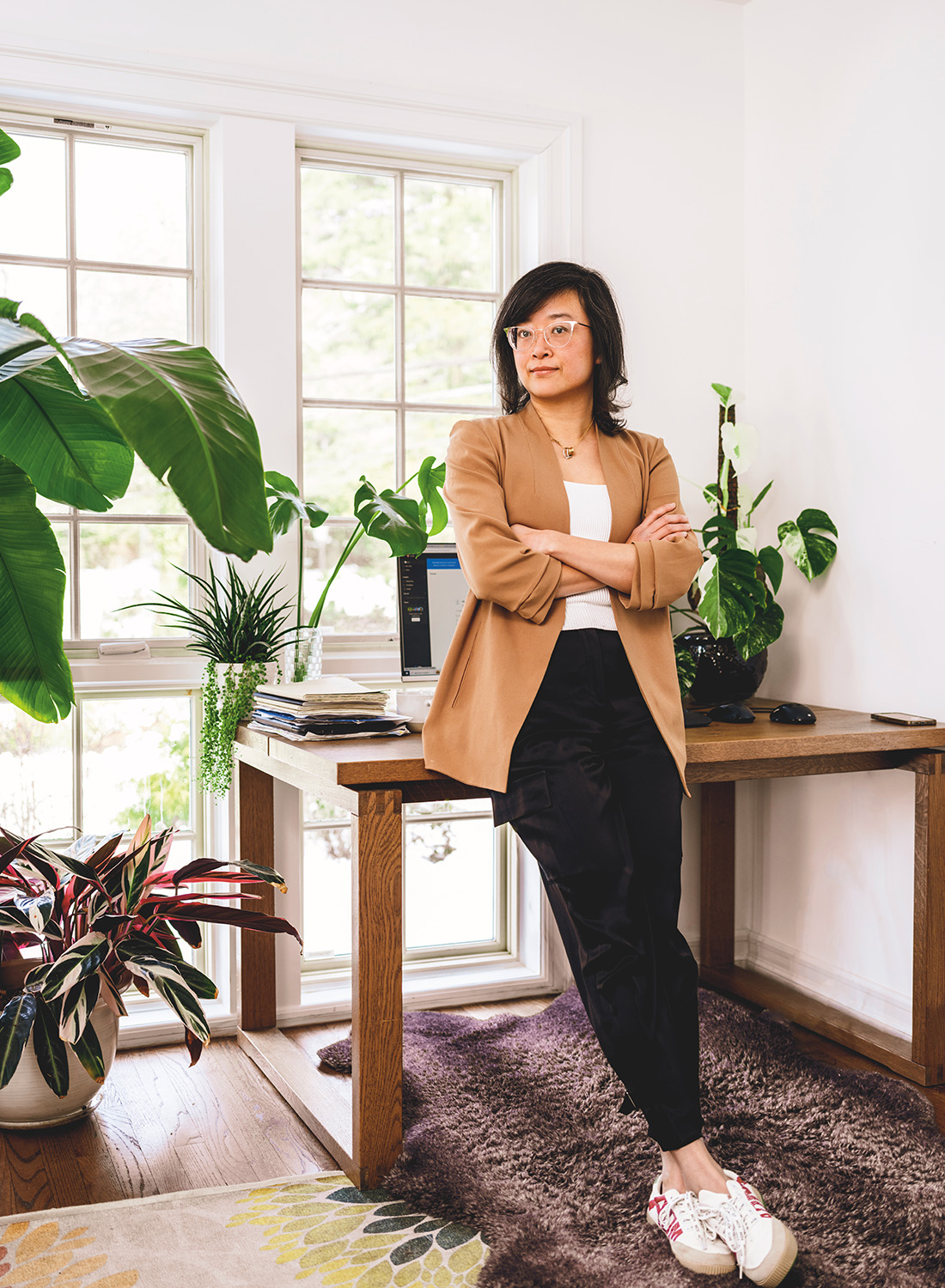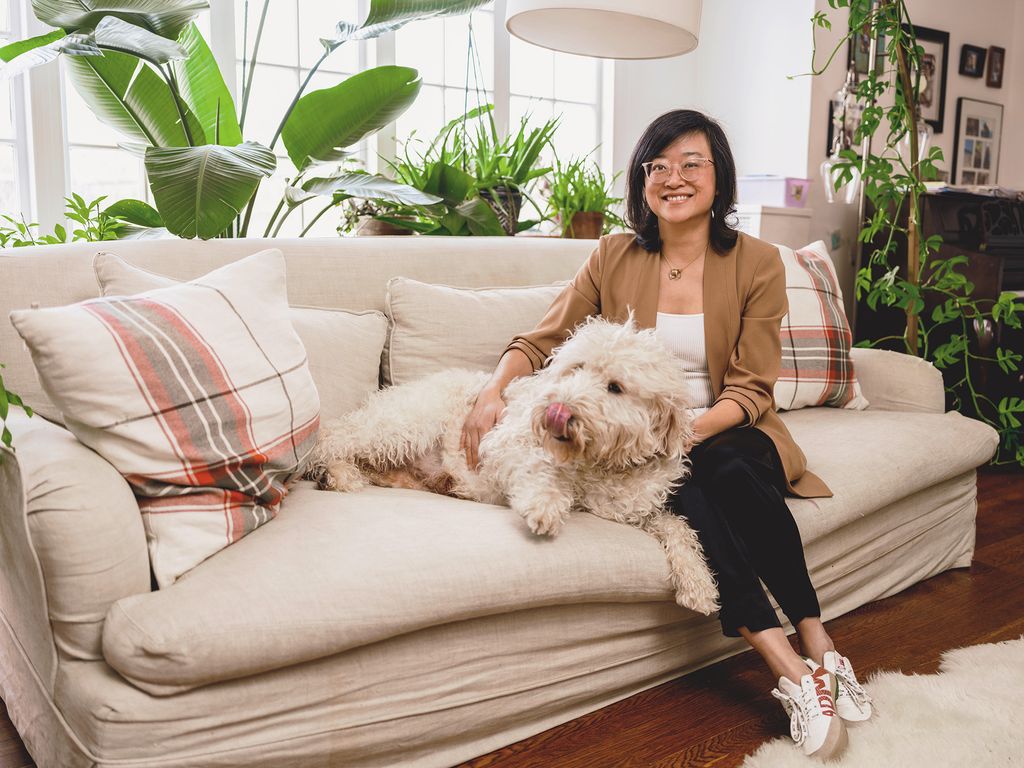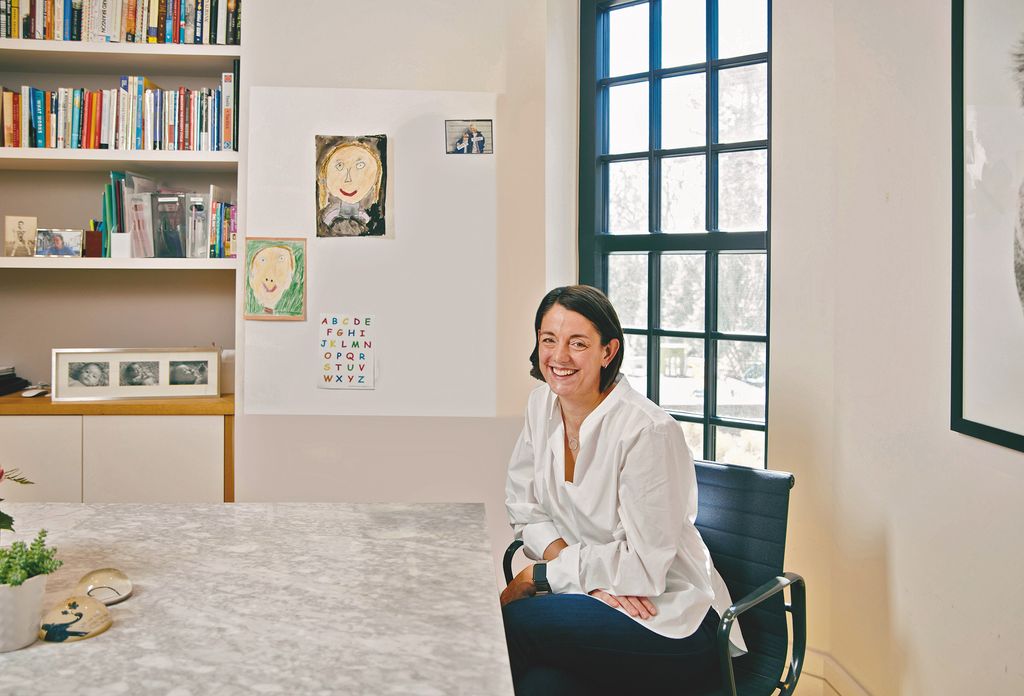From 1L to Founder
BU Law fosters generations of business leaders.

Photo by Chris Sorensen
From 1L to Founder
BU Law fosters generations of business leaders.
With its location in one of the nation’s start-up hubs and a rich history of alumni who launched major businesses, BU Law has earned a reputation for nurturing entrepreneurship in its students.
This strong tradition goes back more than a century. The Class of 1896’s Owen Young founded the Radio Corporation of America (RCA), a subsidiary of General Electric. Over time, RCA became the largest radio company worldwide and led to the first American radio network, the National Broadcasting Company, or NBC. More recently, serial entrepreneur Anil Aggarwal (’95) has led more than 10 fintech and event start-ups to multimillion-dollar acquisitions. His newest venture is Personatech, a leading end-to-end event tech company.
Today, cutting-edge programs such as the BU/MIT Student Innovations Law Clinic, the Transactional Law Program, and the Corporate Counsel Externship give students skills like communication, leadership, and critical and creative thinking. Designed to help them advise corporate clients, these skills are also highly transferable to starting a business. A dual degree program with Questrom School of Business allows students to complete a JD and MBA in as little as four years.
The Record recently caught up with two alumni who are channeling their entrepreneurial spirits and talents into creating new ventures. Ming Zeng (’09) and Alexandra Fennell (’03) have each founded companies aimed at solving everyday problems. Here is how they got started and how their BU Law education gave them a solid foundation for building their businesses.
Ming Zeng (’09) Founds Caregiving Platform Apiari

A late night in the office as a senior associate in a New York City firm sparked Ming Zeng’s idea for a business.
Zeng was in a meeting with a partner that was running past regular business hours. She wanted to stay late but quickly realized there would be no one at home to care for her children, aged one and three.
Even with the law firm’s generous backup care benefits and the emergence of apps designed to book caregivers, she wasn’t able to arrange the help she needed when she needed it. On-site childcare ended at 6 pm, and finding a reliable sitter for last-minute evening coverage was impossible. She ended up going home.
“I worried about the firm’s perception of me as a working mother,” she says. “I was bringing in clients, getting great feedback, but I didn’t have the flexibility that others had to show up for important meetings.”
Discussing the dilemma with Yi-Hsian Godfrey (COM’97, CAS’97), former marketing director at American Express, they realized there was a business opportunity. They set out to create a new technology platform that would meet the needs of families and connect them with experienced care providers, starting with babysitters.
The two teamed up with a third cofounder, Adam Berlinsky-Schine, former chief technology officer of dating app Coffee Meets Bagel, who built the website’s matching platform and chatbot interface.
Apiari launched in 2018. Today, Zeng serves as Apiari’s chief operating officer, while Godfrey is the CEO.
Because Apiari thoroughly screens the caregivers before they can join the platform, parents who use the service can have confidence they’re hiring a trustworthy person, often booking a provider within minutes of a match. Likewise, caregivers don’t have to waste their time and money going on interviews that might never lead to paid work, she says. The platform also provides seamless payment tools for care providers.
Zeng and Godfrey have continued to fundraise to grow the company, with a focus on nurturing the caregiver side of the business, a population that has been traditionally overlooked and underserved by the technology industry. The New York Economic Development Commission chose the company for a founder fellowship in 2023. Apiari also recently received funding from Vest Her Ventures, a venture capital firm specializing in women-led tech companies that enable economic mobility and inclusive workspaces.
“We have passionate ideas. While testing out hypotheses, it helps me see objectively where the weak points are and in what direction to take an idea.”
Zeng says her BU Law education built a solid foundation for becoming an entrepreneur, helping her respond to investor questions about risk, structure the company to limit legal liability, and operate in a safe and sound way.
“More importantly, the legal training has shaped my critical thinking,” she says, and informed the many iterative discussions she had with her cofounders. “We have passionate ideas. While testing out hypotheses, it helps me see objectively where the weak points are and in what direction to take an idea.”
The start-up experience, even with its roller-coaster ups and downs and fundraising challenges, has been fun and fulfilling. Plus, it hews closer to her original dream of becoming a human rights lawyer than her earlier career in corporate law, where she focused on cross-border mergers and acquisitions and project financings.
After hearing stories of babysitters who spent days and weeks applying to jobs and going on interviews, some even lacking the metro fare to get home, she was inspired to level the playing field for them. Ultimately, she hopes her business will be able to provide them with other benefits, such as health insurance and retirement savings.
“I’ve always been passionate about helping people,” she says. Now, she gets to support a community of caregivers who are nearly all women, 80 to 90 percent of whom are people of color. “It was a driving force. No one else is building a platform for this group.”
Alexandra Fennell (’03) Conceives Attn:Grace

When she first began pitching her business idea for a new line of incontinence products, Alexandra Fennell says she had to resist the temptation to ask everyone she met with to sign a nondisclosure agreement.
It seemed like a sensible risk-management tactic to Fennell, who had spent 16 years practicing patent litigation before becoming an entrepreneur. Not so much in the fast and loose start-up world.
“My brother-in-law, a VC in the UK, told me I had to dial it back,” she says.
She was also taken aback when, during an investor meeting, a young venture capitalist turned to her and asked, “What are you going to do as a lawyer?” Meanwhile, the man had instantly connected with her cofounder and wife, Mia Abbruzzese, who had previously launched the successful children’s shoe brand Morgan & Milo.
Pitching to him and other mostly male investors, it felt like an uphill battle to get them excited about the new product idea. Fennell began to doubt her decision to leave the “golden handcuffs” of a law firm partnership and pursue a risky new venture, especially one geared toward a common but embarrassing condition that primarily affects women.
But she and Abbruzzese steeled their resolve after hearing a speaker at an industry conference refer to similar products being buried in a store’s “aisle of death.”
“I thought, ‘Oh no, this is why we have to do this,’” she says.
The inspiration for their company, Attn:Grace, was seeing their parents deal with varying degrees of incontinence when they reached their 80s.
“My father dealt with it in a very male way, which is saying, not at all,” Fennell says. Abbruzzese’s mom lived a very active and dignified life in the house where she raised her children. Yet, at lunch one day on the North Shore of Boston, her mom struggled to discreetly stuff her adult diapers into a blue plastic newspaper wrapper.
Their market research found that 77 percent of women were not happy with the products they were using.
Thinking there must be a better way, Abbruzzese and Fennell worked with manufacturers and a team of experts in the nonwoven category—which includes wipes, diapers, and menstrual products—to develop sustainable incontinence products that would help destigmatize a problem that affects half of adult women.
Their products also promote wellness, since they are made with materials that don’t cause irritation and are specially designed to capture lighter viscosity liquids, unlike the period products many women start out using.
They launched Attn:Grace in 2020, selling online directly to consumers. In May 2023, their products became available in 1,600 Walmart stores nationwide and through Target.com. Last summer, they closed a $2 million fundraising round.
Notwithstanding those earlier challenges, Fennell says her BU Law education and legal background prepared her well to become an entrepreneur.
Her legal training taught her to persevere, prioritize, and organize. Her writing professors, including the late Robert Volk (’78), helped her hone the communications skills she now relies on daily.
“I’m a lawyer, through and through. It’s ingrained in how I assess risk, problem-solve, and put teams together. It probably comes through in everything I do.”
“The BU Law writing program was hands-down transformative for me,” she says.
BU Law internships gave her practical experience. “It was helpful to learn not in a vacuum or a hypothetical world all the time,” she says. The first summer, she worked at GLBTQ Legal Advocates and Defenders, founded by Professor John Ward (’76). During the second summer, she interned at a law firm that placed her with an insurance company client, where she got her first sense of balance sheets and bottom lines.
She has deployed her legal background in many tasks, including researching patent issues and navigating the rigorous process of applying for and obtaining B Corporation certification for Attn:Grace showing it meets high social and environmental performance standards.
“That’s one of our proudest achievements,” she says. It also imposed a level of discipline on building the business, forcing the founders to think about everything from how they source their ingredients to their labor practices. Following such stringent regulations is not unlike practicing law.
“I’m a lawyer, through and through,” she says. “It’s ingrained in how I assess risk, problem-solve, and put teams together. It probably comes through in everything I do.”